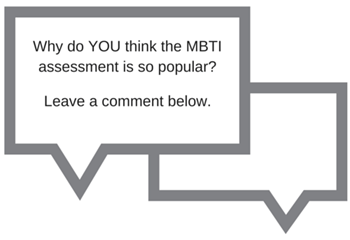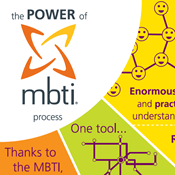How should we respond to criticism of the MBTI assessment?
Penny Moyle, CEO at OPP
 As an MBTI practitioner, I encounter a lot of individual opinions and viewpoints about the Myers-Briggs Type Indicator – sometimes incredibly positive and sometimes vehemently critical. When our work and methods are criticised, it is natural to want to defend oneself, but in doing so it can be difficult not to come across as rather defensive. Understanding where critics of the MBTI assessment are coming from, and how to respond to the individual points that they raise, has an important place.
As an MBTI practitioner, I encounter a lot of individual opinions and viewpoints about the Myers-Briggs Type Indicator – sometimes incredibly positive and sometimes vehemently critical. When our work and methods are criticised, it is natural to want to defend oneself, but in doing so it can be difficult not to come across as rather defensive. Understanding where critics of the MBTI assessment are coming from, and how to respond to the individual points that they raise, has an important place.
I met someone recently (at a 5-year old’s birthday party, of all places) who, when I was introduced as a Business Psychologist specialising in personality, was quick to tell me that the head of her organisation is a ‘big fan of the Myers-Briggs’. She went on to tell me her concern about a recent article that had been doing the rounds, which was critical of the MBTI assessment. I’m sure that this is a scenario that most of us MBTI practitioners are familiar with – first, as soon as we mention an interest in personality, many people’s first thought is the Myers-Briggs Type Indicator. It is afterall the world’s most popular personality assessment. Second, even those who have had a positive experience with the Myers-Briggs assessment can be caused to question the value of that experience when they hear about various criticisms.
I don’t know exactly which critique was the cause in this case, but I was interested and pleased to hear what the response had been in that particular organisation. Apparently the article was emailed around the organisation – admittedly an academically-oriented institution in Oxford, full of smart, independently-minded individuals who just love to read articles.

The response within the organisation was overwhelming. The clear consensus was that these individuals had each found the MBTI assessment process (which, of course, had included a best-fit discussion with a trained practitioner) to be ‘eerily accurate’.
On top of this, the advice given to each of them as to how they could improve their performance by having a more complete understanding of where they sit within this framework, and how to engage the other 15 MBTI Types, was very useful. On the back of this discussion about their own individual experiences, the organisation concluded that it was best to pay little attention to the criticism in the article.
It strikes me that the above is likely to be a pretty common response when people reflect on a well-delivered MBTI experience. Although various pieces have been written to refute and re-explain the different criticisms of the MBTI instrument, there is actually something enormously powerful about the experience that we are able to deliver as practitioners, and this is often our most convincing argument.
So, when critics puzzle over the question ‘Why does the MBTI questionnaire persist?’, our resounding reply could be as simple as ‘Because it makes a difference!’ The Myers-Briggs Type Indicator has a proven track-record that has brought lasting value to millions of users. Try it, and you can see for yourself.
Related content
Download the power of MBTI infographicWatch ‘Taking on the MBTI sceptics’ webcast (30 minutes)
Realizing the full value of the Myers-Briggs Assessment (external link)
Reliability and validity of the MBTI® instrument (pdf download)
Related blog posts
A little MBTI knowledge can be a dangerous thingAvoiding the ‘so what?’ factor with the MBTI tool
Does all this talk of Ambiversion mean the MBTI framework is out of date?
MBTI 'aha!' moments and ROI - where is the evidence?
Share your thoughts

